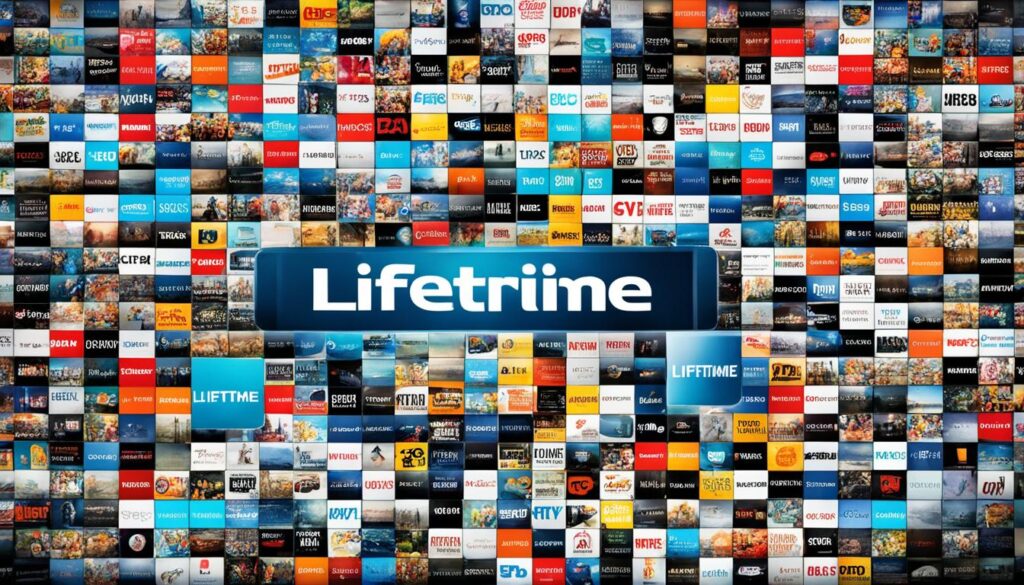IPTV Subscription Lifetime
Table of Contents
Introduction
The world of television has undergone a massive transformation over the past decade. From the early days of cable TV to the advent of streaming services, the way we consume content has evolved dramatically. Among the latest innovations in this space is IPTV, or Internet Protocol Television, which promises a new era of convenience and choice. But what exactly is IPTV, and why are lifetime subscriptions becoming so popular?
What is IPTV?
Definition and Basics
IPTV stands for Internet Protocol Television. Uniptvlike traditional broadcasting methods, IPTV delivers television content over the internet. This means you can watch your favorite shows, movies, and live events using your internet connection rather than through cable or satellite.

How IPTV Works
IPTV works by converting television signals into digital data, which is then transmitted over the internet. This data is received by an IPTV-enabled device, such as a smart TV, computer, or set-top box, which decodes the signals and displays the content on your screen. This method allows for a much more flexible and interactive viewing experience compared to traditional TV.
Types of IPTV Services
Live IPTV
Live IPTV is similar to traditional TV in that it broadcasts content in real-time. You can watch live sports events, news broadcasts, and other programs as they happen.
Video on Demand (VOD)
VOD allows you to watch content whenever you want. This includes movies, TV series, and special programs that you can start, pause, and resume at your convenience.
Time-shifted Media
Time-shifted media is like a hybrid between live IPTV and VOD. It allows you to watch live broadcasts at a later time, providing the flexibility to catch up on programs you missed.
The Rise of IPTV Subscription Lifetime
What is a Lifetime Subscription?
A lifetime subscription for IPTV means you pay a one-time fee to access IPTV services for life. This is in contrast to monthly or yearly subscription models where you have to keep renewing your service.
Popularity and Demand
Lifetime subscriptions have become increasingly popular due to their cost-effectiveness and convenience. With the rising costs of cable TV and the proliferation of various streaming services, a one-time payment for unlimited access to a wide range of content is very appealing to many consumers.
Benefits of IPTV Subscription Lifetime
Cost-effectiveness
One of the biggest advantages of a lifetime IPTV subscription is that it can save you a lot of money in the long run. Instead of paying monthly fees, a single payment grants you access to a plethora of channels and content.

Unlimited Access
With a lifetime subscription, you get unlimited access to all the content provided by your IPTV service. There are no restrictions or additional costs for premium content.
No Monthly Bills
Say goodbye to the hassle of monthly bills. A lifetime subscription means you only pay once and enjoy the service indefinitely, making it a very convenient option.
Potential Drawbacks
Initial Cost
The initial cost of a lifetime subscription can be quite high compared to monthly or yearly plans. This upfront investment might be a barrier for some people.
Service Reliability
The reliability of IPTV services can vary. Some providers might offer excellent service, while others might have frequent outages or poor customer support.
Legal Issues
IPTV services can sometimes operate in a legal gray area. It’s important to choose a reputable provider to avoid potential legal issues.
IPTV vs. Traditional Cable TV
Cost Comparison
Traditional cable TV often comes with a high monthly cost, which can add up significantly over time. IPTV, especially with a lifetime subscription, can be much more affordable.
Flexibility and Convenience
IPTV offers greater flexibility and convenience. You can watch content on multiple devices, anywhere you have an internet connection.
Content Variety
IPTV often provides a wider variety of content, including international channels and niche programming that might not be available on traditional cable.
IPTV vs. Other Streaming Services
Comparison with Netflix, Hulu, etc.
While streaming services like Netflix and Hulu offer a vast library of on-demand content, IPTV combines live TV, VOD, and time-shifted media, offering a more comprehensive viewing experience.
Advantages and Disadvantages
IPTV’s main advantage is its combination of different types of content. However, streaming services like Netflix might offer more exclusive content and original programming.
Technological Advancements in IPTV
Improved Streaming Quality
Technological advancements have significantly improved the quality of IPTV streaming. Many providers now offer HD and even 4K streaming options.
Smart Features and Integration
Modern IPTV services often come with smart features like voice control, personalized recommendations, and seamless integration with other smart home devices.
How to Choose the Right IPTV Service
Factors to Consider
When choosing an IPTV service, consider factors like the variety of content, streaming quality, customer support, and legality. It’s also important to read reviews and compare different providers.
Research and Reviews
Do thorough research and read customer reviews to ensure you select a reliable IPTV service. Look for feedback on service quality, reliability, and customer support.
Setting Up IPTV
Equipment Needed
To set up IPTV, you’ll need a device that can decode IPTV signals. This can be a smart TV, a computer, a smartphone, or a dedicated IPTV set-top box.
Step-by-step Setup Guide
- Choose an IPTV provider and subscribe.
- Download and install the IPTV app on your device.
- Log in with your subscription details.
- Browse the available content and start watching.
The Future of IPTV Subscription Lifetime
Trends and Predictions
The future of IPTV looks promising, with more people switching from traditional cable to IPTV. Technological advancements and increased internet speeds will likely drive further growth.
Potential Challenges
However, challenges such as service reliability, legal issues, and competition from other streaming services remain. Providers will need to address these to stay competitive.
Case Studies
Successful IPTV Providers
Several IPTV providers have successfully captured the market by offering reliable service and a wide variety of content. Examples include services like IPTV Smarters, which are known for their user-friendly interfaces and robust content libraries.
User Experiences
Many users report positive experiences with IPTV, citing the convenience, variety of content, and cost savings as major benefits.
Common Myths about IPTV
Debunking Misconceptions
There are several myths about IPTV, such as it being illegal or unreliable. While there are shady providers, many reputable services operate legally and offer reliable service.
Conclusion
In conclusion, IPTV represents the future of television streaming. With its combination of live TV, VOD, and time-shifted media, it offers a comprehensive and flexible viewing experience. Lifetime subscriptions, in particular, provide a cost-effective and convenient option for many consumers. As technology continues to advance, the popularity of IPTV is only set to grow.

FAQs
What is IPTV?
IPTV stands for Internet Protocol Television, which delivers television content over the internet instead of through traditional cable or satellite.
How does IPTV differ from traditional TV?
Unlike traditional TV, IPTV allows you to watch content over the internet, offering more flexibility and a wider variety of content.
Are IPTV lifetime subscriptions legal?
Yes, many IPTV lifetime subscriptions are legal. However, it’s important to choose a reputable provider to avoid any legal issues.
How do I set up an IPTV service?
To set up IPTV, you need an IPTV-enabled device, a subscription to an IPTV provider, and the provider’s app. Install the app, log in, and start watching.
What should I consider before buying an IPTV lifetime subscription?
Before buying an IPTV lifetime subscription, consider the initial cost, the reliability of the service, the variety of content offered, and the legality of the provider.





